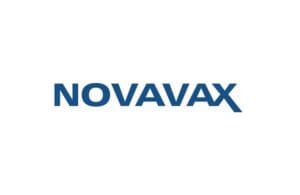 A Phase 2a-b trial found that the Novavax (NASDAQ: NVAX) NVX-CoV2373 vaccine was 51% effective against the B.1.351 variant in HIV-negative participants without evidence of prior SARS-CoV-2 infection.
A Phase 2a-b trial found that the Novavax (NASDAQ: NVAX) NVX-CoV2373 vaccine was 51% effective against the B.1.351 variant in HIV-negative participants without evidence of prior SARS-CoV-2 infection.
The overall vaccine efficacy against SARS-CoV-2 was 49% and 60% for HIV-negative participants, according to the study published in NEJM.
The study authors note that the efficacy figures are preliminary.
The study’s primary efficacy endpoint was protection against laboratory-confirmed COVID-19 seven or more days after administration of the second dose.
The study involved 4,387 participants.
An earlier study found that the vaccine was 96.4% effective at preventing COVID-19 caused by the original strain of the virus. That figure dropped to 86.3% when it came to protecting against the U.K. variant (B.1.1.7) and 49% against the B.1.351 variant.
The Novavax vaccine differs from others that are currently available. Namely, it is a recombinant SARS-CoV-2 nanoparticle vaccine that uses an adjuvant known as Matrix-M. The company integrated a modified gene for the SARS-CoV-2 spike protein into a baculovirus and used that virus to infect moth cells. The cells then produced the spike protein.
Novavax then purifies those proteins and combines them with polysorbate 80 to create protein nanoparticles. The company then combines those particles with its Matrix-M adjuvant, which uses 40-nanometer particles based on a bioorganic compound known as saponin along with cholesterol and phospholipid.
Adverse events in the recent study were generally mild, including headache, muscle pain and fatigue.
The study authors also concluded that prior exposure to SARS-CoV-2 did not seem to reduce the risk of infection from the B.1.351 variant. “This finding is preliminary and may have public health implications for pandemic modeling, control strategies, and vaccine development and deployment efforts,” the study authors concluded.
Filed Under: clinical trials, Drug Discovery, Infectious Disease





Tell Us What You Think!
You must be logged in to post a comment.